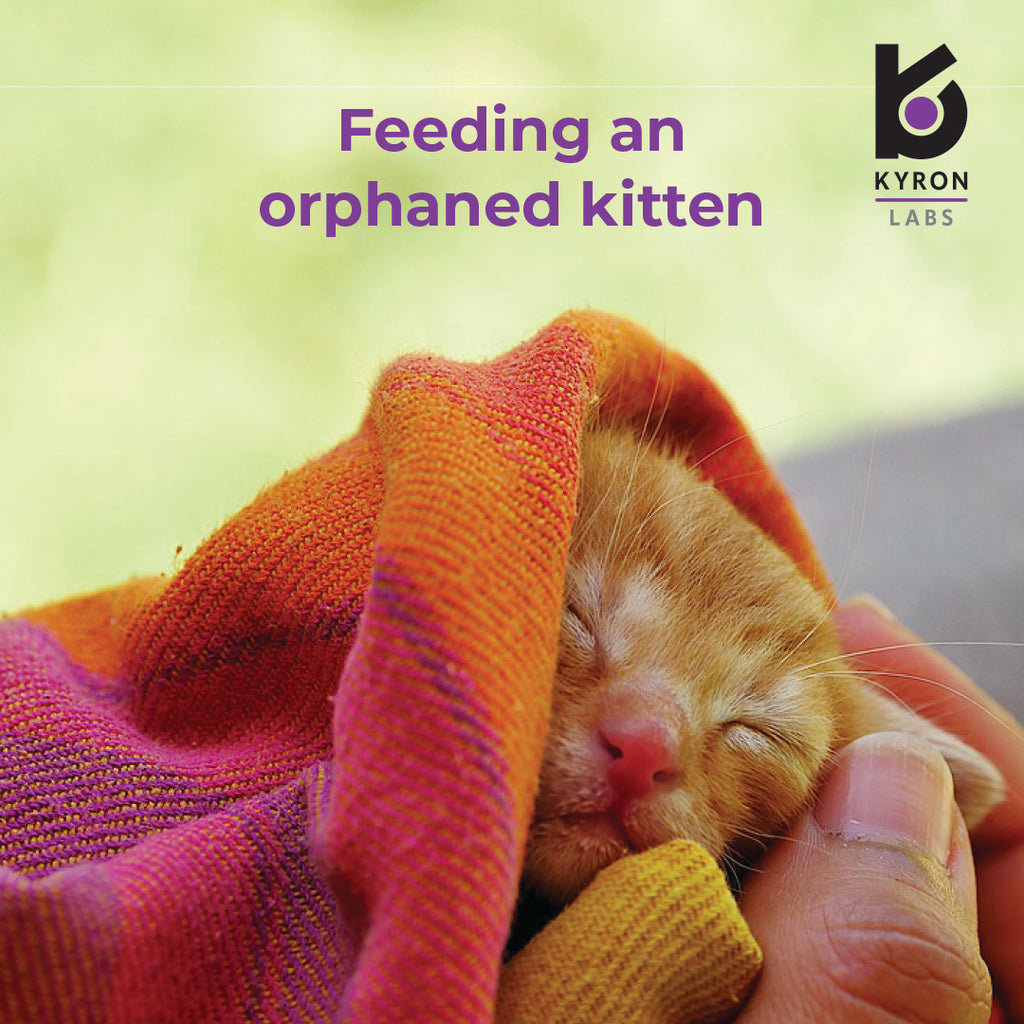FEEDING AN ORPHANED KITTEN

Caring for a newborn orphaned kitten can be a challenging yet rewarding task. In this article, we will provide some guidelines for feeding an orphaned kitten.
Determine age and check for health problems
Before starting to feed the kitten, it is important to determine its age. Kittens generally open their eyes between days 7 and 14. If the eyes are still closed, the kitten is very young, and feeding it will require a lot of work. A visit to the veterinarian is necessary to determine the kitten's health status and age. Any noticeable health problems such as skin lesions, crusty eyelids, or dehydration can be addressed by the veterinarian and appropriate treatment started.
Kitten Milk Replacer
To feed very young kittens, you'll need to obtain a feeding device and kitten milk replacer.. One option is Kyron KITTYMILK Replacement for Kittens, which is a nutritional supplement and milk replacer in powder form. It contains arginine, protein, taurine, fat, minerals, and vitamins that are similar to the content of a cat's milk. It supplies the essential nutrients that kittens need for healthy growth and development.

How to use KITTYMILK Replacer
Many veterinarians use an ordinary eye dropper or a small syringe to dispense the milk replacer to the kitten. Some pet stores or veterinary clinics may have nursing bottles, but be aware that some kittens may not be able to suck the contents through the small nipple. In this case, you may need to squeeze the milk out for the kitten while having the nipple in the kitten's mouth. The mixture should be freshly prepared for each feeding and reconstituted with warm water. It is important not to microwave it since hot spots can occur.
For very young or malnourished kittens, mix 1 level measure of KITTYMILK with 2 measures of lukewarm water. For older kittens, mix 2 level measures with 3 measures of lukewarm water. Kittens should be given 32% of their body weight divided into 24 hours of feeding.
Once the kitten gets the hang of it, they should consume the milk replacer greedily. When the kitten begins to slow down consumption or lose interest, you can stop the feeding.
When the orphaned kittens reach about three weeks of age, you can start providing watered-down meat-based kitten food for them to nibble on. Once they start eating food from the can, you can leave out dry kibble for them to munch on, too. It is recommended to use kibble with good protein and fat levels.
If you notice any health problems or a "poor doer," which is a kitten that lags behind the other littermates in body size, alertness, or activity level, keep in touch with your veterinarian. The earlier any problems are detected and addressed, the better the chance for recovery. With proper care and attention, feeding an orphaned kitten can be a rewarding experience.
At six weeks of age, kittens should be making good progress in eating, drinking, and exploring independently, providing plenty of entertainment. It's important to have your veterinarian examine them and discuss vaccination options, which are typically administered between six and eight weeks old, depending on the vet's recommendations. Additionally, your veterinarian will likely conduct viral testing to eliminate the possibility of feline leukemia and feline immunodeficiency virus.
Another challenge would be to let these cute orphaned kittens go to new homes without you, so good luck with that!

